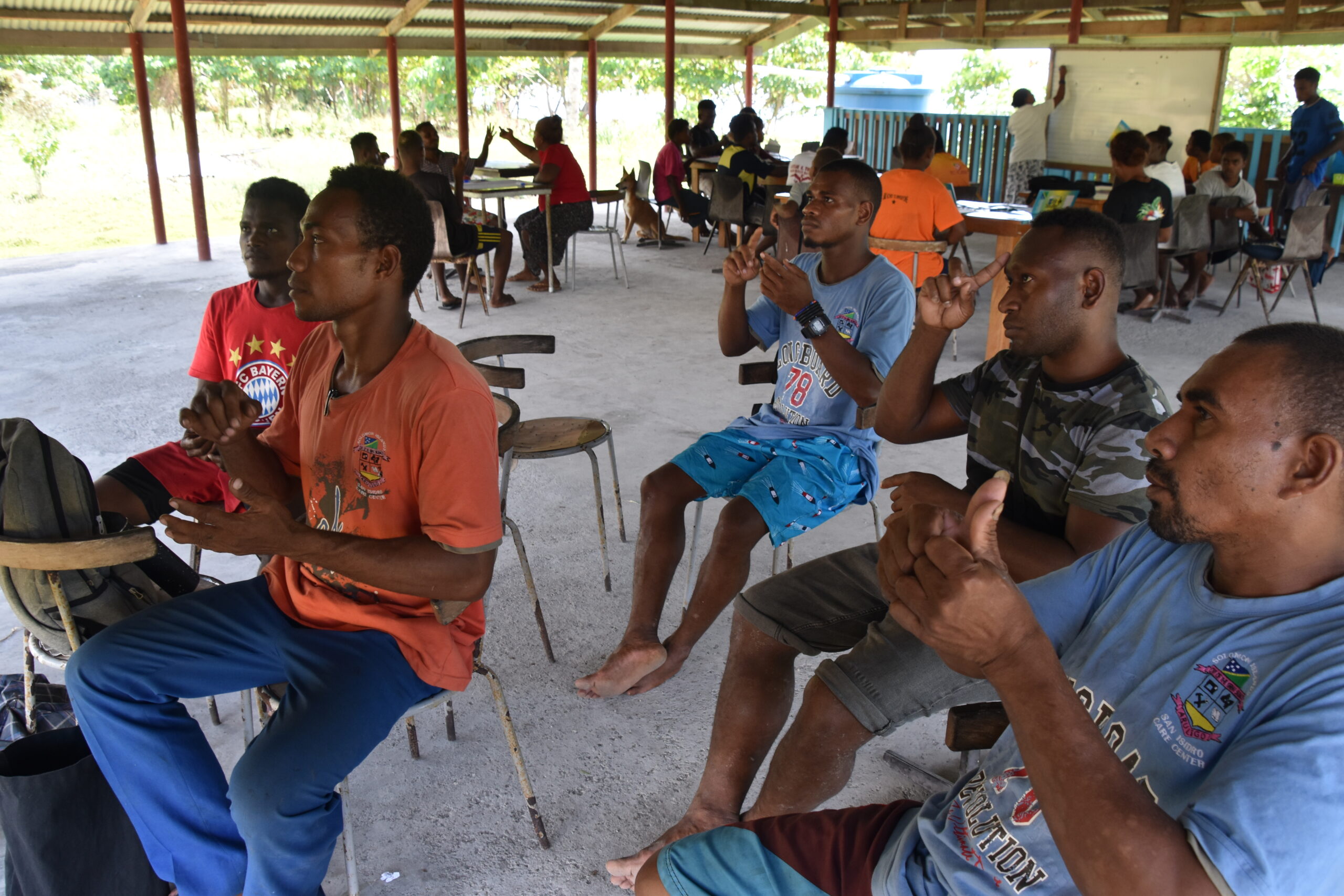
Carpentry students lead the way for persons with disabilities
“We can hold a hammer. We have skills. We want to work to support our family and community.”
These are the powerful words of final-year carpentry student Robert Haga.
Like many young Solomon Islanders, he has a strong desire to build his own house, find work and support himself and his family.
“After I graduate, I want to go home to Makira to find a job and support myself,” Haga said.
“I’ve learnt about how to follow a floor plan, brickwork, and how to build a roof.”
What’s special about Robert and his classmates at San Isidro Care Centre and School for the Deaf is that they all have a hearing disability and communicate using sign language.

Australia, through the Solomon Islands Infrastructure Program, is supporting Robert and other students at San Isidro and Bethesda Disability Training Centres learn construction skills, and provide them with tool kits to give them the chance to earn an income, be their best, and contribute to building Solomon Islands.
Australian High Commissioner, Rod Hilton, said International Day of Persons with Disabilities – 3 December – was a chance to pause and take stock of the progress towards including every Solomon Islander in social and economic life.
“Whether it’s designing and building infrastructure to be inclusive of the needs of people with disabilities, or supporting outstanding people like Robert and his peers to create a more diverse and inclusive workforce, persons with disabilities are challenging us all to see the potential of a more inclusive society,” High Commissioner Hilton said.
San Isidro Life Skills Teacher and Interpreter, Louisa Ani, says many employers don’t take on persons with disabilities, but it’s changing.

Graduating Bethesda student Michael Fadai with Prime Minister Hon. Jeremiah Manele, advised his peers to never give up.
“Our students are very able. They have good character and have the skills to do painting, tiling, and anything with a hammer and saw,” Ani said.
She said one former student is now working at Solomon Ports in carpentry.
“The benefit is the same for everyone – they can get work, earn money and help their family and their future.”
Ashley Biibo from Malaita, is half-way through the four-year San Isidro course.
Australia’s support is helping his family to cover his boarding and tuition fees, ensuring he can complete his studies.
“I’ve been really interested to learn how to measure and cut things to plan,” he said. “I hope companies can also include people with disabilities inside their construction works.”
Robert says that when he gets home, he’ll be encouraging other kids with disabilities to go to school.
“Parents with children with disabilities need to ensure they attend school,” he says. “We all need skills for life, and people in the village should help people with disabilities once they have skills to get work.”
At a recent industry training on disability and the construction sector convened by Australia’s Solomon Islands Infrastructure Program, wheelchair user and quantity surveyor Dereck Kolly said inclusive workplaces benefited from the skills and experience of people with disabilities.

“Inclusion is understanding the limitations of people with disabilities, and embracing the difference.”
Prime Minister Jeremiah Manele said the same when celebrating the graduation of seven students at Bethesda Disability Training Centre last month.
“Being disabled does not mean being disqualified,” Mr Manele said. “Together, as a nation, we must ensure that everyone has the opportunity to contribute to building a stronger Solomon Islands.”
Graduating Bethesda student, Michael Fadai, who was also sponsored under Australia’s program, encouraged his peers to work hard to make a difference.
“To all the younger students, my advice is simple: work hard to achieve your goals. You have the skills to make a difference in others’ lives – never give up!”
High Commissioner Hilton said Bethesda and San Isidro students are changing the way people with disabilities are seen in our communities and the private sector.
“Australia is committed to supporting these students to gain the skills they need to find work, because we believe every individual, regardless of their abilities, deserves the opportunity to build their future and contribute to Solomon Islands.”
San Isidro Care Centre and School for the Deaf is currently the only centre in Solomon Islands providing training and life skills for people with impaired hearing.
Since 2007, it has trained over 200 people with disabilities, with 60 percent going on to employment.
Around Solomon Islands, San Isidro graduates are building homes, selling houses, and using sign language and other means to make themselves understood.
* Did you know an estimated 1.3 billion people experience significant disability. This represents 16% of the world’s population, or 1 in 6 of us. Each year, International Day of Persons with Disabilities, is celebrated on 3 December to champion the rights and wellbeing of persons with disabilities. This year’s theme is, ‘Amplifying the leadership of persons with disabilities for an inclusive and sustainable future.’

